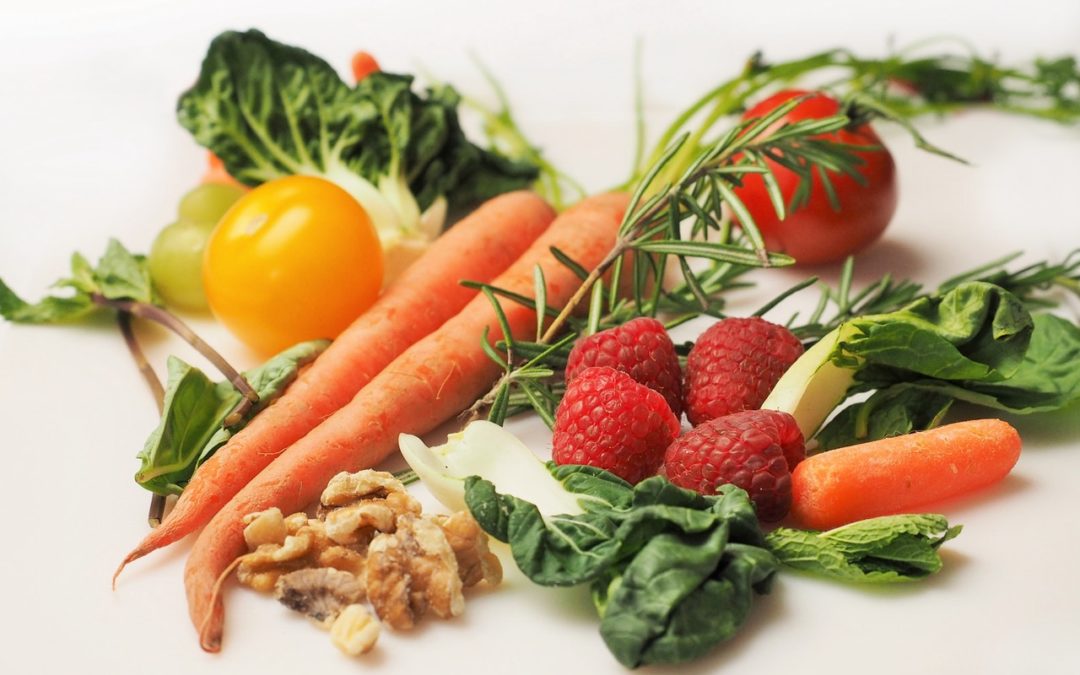When it comes to our beloved furbabies, there’s not much we won’t do. The amount of information available regarding how to keep your dog healthy can be overwhelming: the number of advertised supplements alone can be daunting. One type of supplement is in the form of antioxidants. Read on to learn what antioxidants are and how they can be beneficial for your fur-child.
What are antioxidants and why should you give them to your dog?
First, let’s talk a little bit about what antioxidants are and why they’re so important. During the process of metabolism (your dog eating and expending energy), a by-product called a free radical is produced. These free radicals contain oxygen but are missing an electron. This makes them very reactive, and they pull that missing electron from proteins, DNA, and cell membranes. This cellular damage often causes these substances to, in turn, become free radicals. Free radicals are also produced in greater amounts when pets are elderly, sick, exposed to toxins, or have improper or poor nutrition.
So where do antioxidants come in? Antioxidants are any compound that can inhibit this oxidization process.
This means they donate the electron the free radicals are missing without becoming free radicals themselves, mitigating the damaging molecule and preventing it from causing havoc in the body of your pet. Having an abundant amount of antioxidants in your dog’s diet is essential for a happy, healthy pooch. Antioxidants can strengthen your dog’s immune system and help them age well.
Many foods are enriched with antioxidants already, while some antioxidants are fed as a dietary supplement. Let’s explore some of the different antioxidants.
Different Antioxidants For Dogs
Here are just a few examples of the antioxidants available for your dog.
- Astaxanthin
This antioxidant is the red hue found in microalgae and is what gives shrimp, salmon, and flamingos their pink coloration. Astaxanthin reduces inflammation in joints and blocks the chemicals that create pain due to arthritis. The anti-inflammatory properties can also relieve dry eye and reduce C-Reactive Protein in the body, which is a marker for heart disease. This antioxidant also boosts the immune system and is able to cross the blood-brain barrier, enabling it to provide essential nutrients for brain health.
Astaxanthin is available in supplement form.
- Colostrum
Colostrum is the “first milk” produced by mammals for their newborns shortly after birth. Its main benefit is to help build the immune system of mammal offspring, but it has also shown to have immune benefits in adults. Colostrum contains a hormone called Proline-Rich-Polypeptide, or PRP, that can stimulate an underactive immune system. PRP also has the ability to regulate an overreactive immune system, such as in the case of allergies. Immunoglobulins in colostrum boost the immune system by destroying bacteria and fighting viruses. There have been studies done on humans that showed colostrum increasing mobility by decreasing joint pain and inflammation. Colostrum can also help with digestive health and can even alleviate the symptoms of diseases like Leaky Gut Syndrome. Lactalbumin, a protein in colostrum, can cause apoptosis, or death, of cancer cells. Colostrum can even be used topically on infected ears, abscesses or other skin conditions to promote wound healing.
Colostrum is available as a powdered supplement.
- Green Lipped Mussels
Green-lipped mussels are found in the waters around New Zealand and are rich in omega-3s, vitamins, enzymes, amino acids, and antioxidants. These mussels are a natural source of glycosaminoglycans, or GAGs, which make up the cartilage and synovial fluid that cushions joints. Studies have shown these antioxidants to relieve joint pain and inflammation associated with arthritis. Not only do green-lipped mussels support joint mobility and cartilage maintenance, but they also improve cardiovascular health and even healthy skin.
Green-lipped mussels are available in a powder supplement for dogs.
- Eggshell Membrane
The eggshell membrane, the delicate layer between the egg white and the shell, has been shown to improve joint health. Eggshell membrane contains glucosamine, hyaluronic acid, chondroitin, and collagen which are all building blocks of the cartilage in joints that cushions movement. This supplement has been compared to NSAIDS (non-steroidal anti-inflammatory drugs) but has none of the high risks associate with those medicines.
- Phytoplankton
Phytoplankton contains Superoxide Dismutase, or SOD, which is considered the king of all antioxidants. SOD is an enzyme and the most powerful antioxidant in the body. It can not only protect cells but also help remove toxins, like heavy metals, from the body. Not only is phytoplankton an excellent antioxidant, it is also a rich source of omega-3 fats and trace minerals. Phytoplankton contains selenium, known to prevent cancer, and magnesium, which supports joint, heart, and neurological health. This supplement is ideal for dogs with digestive issues as it is absorbed through the gums instead of through the digestive tract.
While choosing a diet that meets all your dog’s nutritional requirements can be a daunting task, adding antioxidants to your pet’s meals can only aid their overall health. Consult your veterinarian with any questions you have regarding your dog’s diet and what supplements may best benefit your individual dog’s needs before altering their routine.

